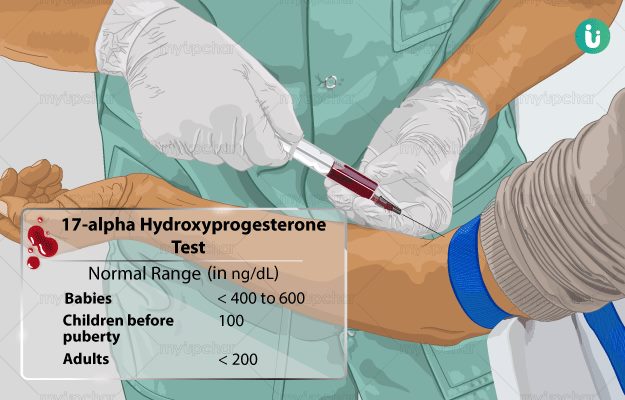What is 17-Alpha Hydroxyprogesterone (17-OHP) test?
17-Alpha hydroxyprogesterone, also known as 17-OH progesterone, is a hormone produced by the adrenal glands - small glands located at the top of each kidney. The sole function of this hormone is to act as a precursor in the production of the stress hormone cortisol. Cortisol plays a vital role in regulating metabolism and controlling the immune system. However, some people lack certain enzymes that catalyse the production of cortisol and hence suffer from cortisol deficiency. This leads to the accumulation of 17-OH progesterone in their bloodstream.
The most common cause of high levels of 17-OH progesterone is congenital adrenal hyperplasia (CAH). It is a genetic condition marked by cortisol deficiency and increased androgen (male sex hormones) levels.
A 17-alpha hydroxyprogesterone test hence helps detect CAH.






























